“A huckster is a peddler — you know, a hawker.”
|
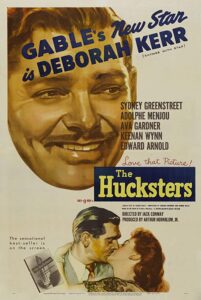
Synopsis:
A reluctant but skilled radio ad man (Clark Gable) considers getting himself hired by Mr. Kimberly (Adolphe Menjou) of Kimberly Advertising Agency, who lives in fear of upsetting his biggest and pickiest client, Mr. Evans (Sydney Greenstreet); meanwhile, Gable kindles a romance with a beautiful nightclub singer (Ava Gardner) while also falling for a lovely but prim war widow (Deborah Kerr) who is at the center of one of their company’s campaigns.
|
|
Genres, Themes, Actors, and Directors:
- Adolphe Menjou Films
- Advertising
- Ava Gardner Films
- Clark Gable Films
- Deborah Kerr Films
- Edward Arnold Films
- Keenan Wynn Films
- Love Triangle
- Sydney Greenstreet Films
- Widows and Widowers
Review:
Deborah Kerr made her American film debut in this adaptation of a novel by Frederick Wakeman, Sr. skewering the radio advertising industry. Unfortunately, there’s not much of note in the screenplay, which is primarily focused on Gable’s WWII-veteran not wanting to simply sell his soul to his job (presumably after living through the horrors of the war). Greenstreet is painted in broad strokes as a bullying Big Man with awful ideas:
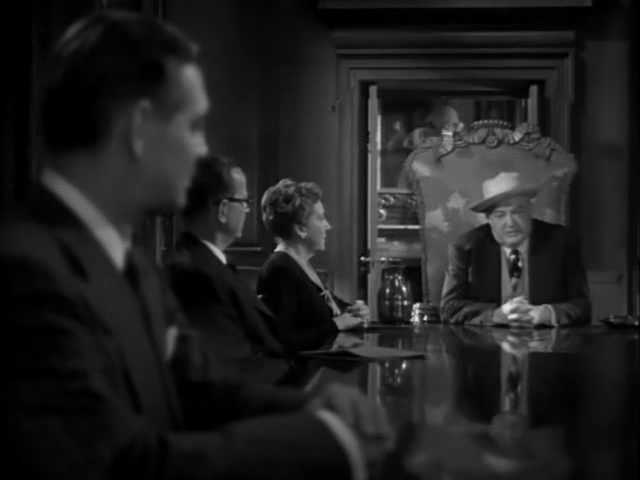
… and Gable’s love triangle between Gardner and Kerr doesn’t hold much weight:
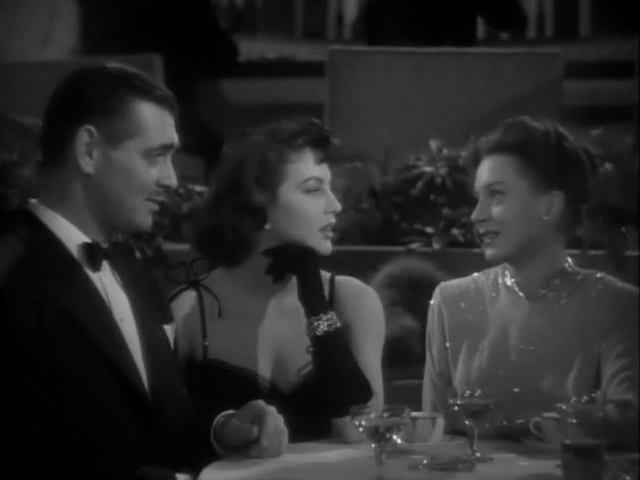
You can skip this one unless you’re a fan of the big-name stars.
Notable Performances, Qualities, and Moments:
- Fine cinematography
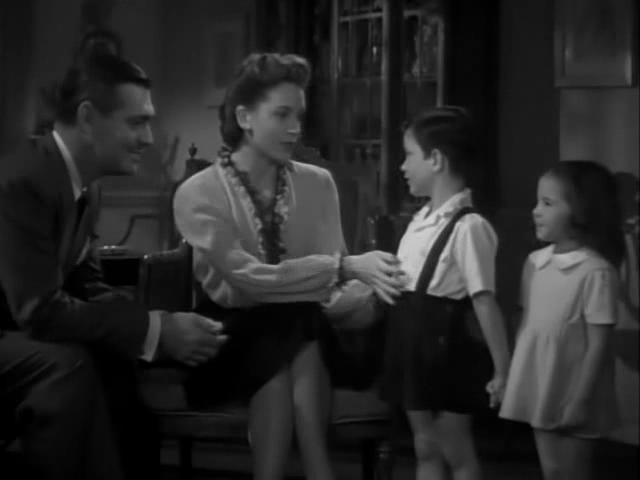
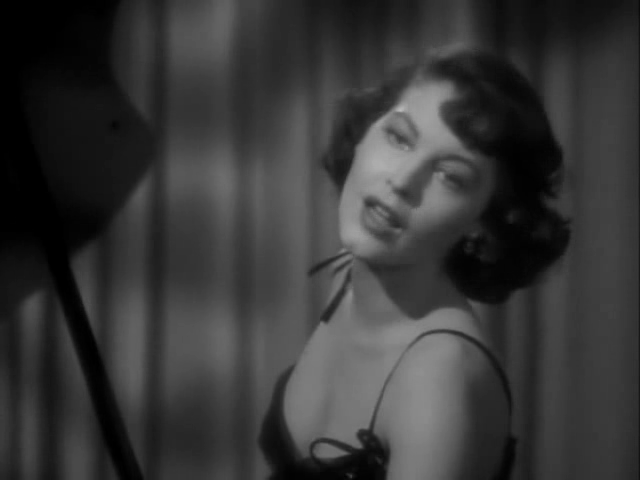
Must See?
No; you can skip this one unless you’re a diehard Gable, Gardner, or Kerr fan. Listed as a Personal Recommendation in the back of Peary’s book.
Links:
|





One thought on “Hucksters, The (1947)”
Not must-see. As per my first-viewing (12/8/20) post in ‘The ’40s-’50s in Film’ (fb):
“Oh, come on, darling, don’t worry about it. Everybody’s done things they’re ashamed of.”
‘The Hucksters’ (1947): Although Frederic Wakeman Sr.’s novel did not end up as an enduring classic – like, say ‘Gone With the Wind’ – it nevertheless spent 35 weeks in 1946 on the NYT bestseller list. Apparently Wakeman was rather the male Jacqueline Susann of his day since his public-loving book was full of sex scenes and other elements of controversy (like ‘the Jewish question’, later removed for the film). Still, MGM’s Louis B. Mayer paid $200,000 for film rights before it was published. He wanted Clark Gable (too old for the protagonist) to star, even though CG found the material “filthy”.
Perhaps needless to say, the book went through a thorough cleansing process before it hit the screen. It concerned itself with hard-hitting business practices in the entertainment and advertising industries. But what ends up in the film requires the viewer’s skill in the filtering process. Although director Jack Conway makes it quite clear who the bad guys and the sycophants are, it can be murky when it comes to Gable’s character. Coming back to the US after WWII, Gable’s Victor Norman is evidently taken back when he realizes how his conquering nation has slipped into a looser morality. But Norman, as it turns out, is not totally immune to the changes.
It seems that the main reason MGM bought the property was for the purpose of making Deborah Kerr a star in America, introducing her here (as Ava Gardner’s rival) after she gained considerable success in England. In the film, Kerr acts as Gable’s conscience, reminding him that there’s nothing wrong with having ethical standards. That’s the kind of thing that audiences like being reminded of* and, since the blowhard antagonist played by Sydney Greenstreet wasn’t based on *him*’, Mayer didn’t mind letting moviegoers lull themselves into believing that ethics and morality win out against big business every time.
* ~at least they probably did in 1947; I’m not at all sure about, say, 2021.